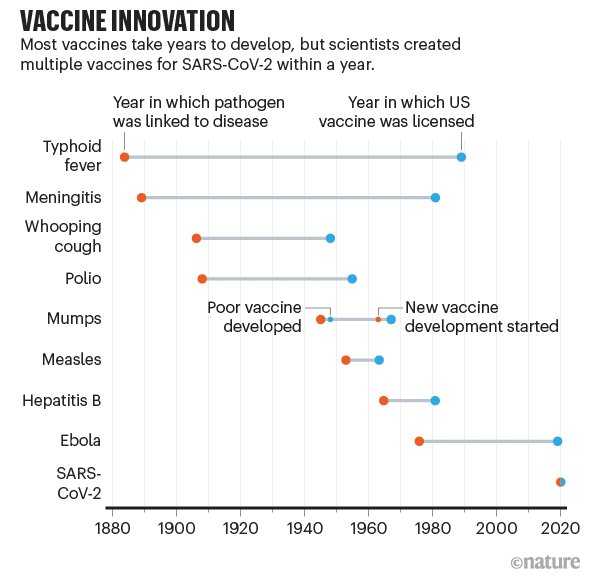SMITH: What are - when you're looking at the vaccine situation now, there are a limited number of COVID vaccines available, at least at this moment. What do you see when you look at that market right now? Not that it's a market per se but you know what I mean.
ROTH: Any time we're allocating scarce resources, I think it's fair to talk about that as the marketplace. It's waiting for a scarce resource to become available. So what we do with [deceased donor] organs is we form waiting lists and each organ has a different kind of waiting list. So that's a little bit like what we're going to see with a vaccine. Different states are going to have different rules of how to get vaccines. They also have different supply and demand. It might be that lots of people in New York will want to have a vaccine. And it's possible - and I'm purely speculating - that a smaller percentage of people in Tennessee will want it, right? We have a lot of vaccine hesitancy in the United States.
SMITH: Yeah.
ROTH: So one thing that reminds me of kidney exchange a little bit is exchange. Supposing it turns out that we allocate to the states proportional to population, which I think we may be doing this morning. And suppose it turns out that in New York, there's a giant shortage, that there are lots of health care workers, and they're eager to get it. And then after that, there are lots of old people and vulnerable people of various sorts. And New York will develop a priority list.
At the same time, they might discover that in Tennessee, they've gotten more vaccines than they can get rid of on the first day because of vaccine hesitancy or maybe people aren't eager to try it out so early. So you could imagine an exchange, that we'll send you 100,000 doses today and call them in two months when we think we'll need them.
SMITH: What would - like, what do you think is sort of an ideal way for states and I guess - and countries to start approaching this? Because it is complicated, and everybody wants this vaccine, right? A lot of people want this vaccine right now. The demand is greater than the supply. Like, what would you I guess like to see happen or like to see start happening for countries and states kind of making this decision?
ROTH: One thing that people have said is, health care workers are important because they help us contain the disease. But they're also vulnerable to it - especially if we talk about the health care workers who are treating people who are ill with COVID. So it might make sense to prioritize them so that the hospitals don't shut down, things like that.
But then you might also say, people who are at risk in various ways should get a high priority because getting a vaccine might save their life. But then we might want to go in a different direction. We might want to say - who is likely to be a superspreader? Who is exposed by the nature of their work? Maybe the essential workers who drive the trucks and deliver the goods and coming to your door and maybe getting your signature.
SMITH: Right, right 'cause this is a little different than a kidney because we're talking about a virus that can spread. So that's in there, too. Like, people who are more likely to - 'cause if we can vaccinate, let's say, like, people who do deliveries, then that could pay sort of exponential dividends.
ROTH: Right. And then we could also think about what's costly to us about the precautions we're taking. One of those things, of course, is child care. If you have school-age children and they're now at home and especially if they're quite young, so they can't even really do Zoom classes without your help, well, then someone in your household is not working very hard 'cause they're providing a service that teachers used to provide. So we might think about what set of vaccinations would be required to open up schools again 'cause that would be a big weight lifted off the economy.
SMITH: Oh, right. That would be - that would help in, like, other ways because then it could help people go back to work, yeah.
ROTH: You'd like there to be the biggest multiplier effect you can get for each vaccine that not only does good for the person getting the jab, you know, the needle in his upper arm but that jab should also do the most good for the most other people.
SMITH: Dr. Alvin Roth is a professor of economics at Stanford University and winner of the 2012 Nobel Prize in Economics.
This episode of THE INDICATOR was produced by Nick Fountain, fact-checked by Sean Saldana. THE INDICATOR is edited by Paddy Hirsch and is a production of NPR.
Copyright © 2020 NPR. All rights reserved. Visit our website terms of use and permissions pages at www.npr.org for further information.
NPR transcripts are created on a rush deadline by Verb8tm, Inc., an NPR contractor, and produced using a proprietary transcription process developed with NPR. This text may not be in its final form and may be updated or revised in the future. Accuracy and availability may vary. The authoritative record of NPR’s programming is the audio record.
*************
A quick note on interviews. These 9 minutes came from a one hour interview, so lots of decisions about what to include were made by NPR. (That’s why I come off as a solitary hero in the initial discussion of kidney exchange.) But, aside from that, the editors did a pretty good job on this one, imho...)




